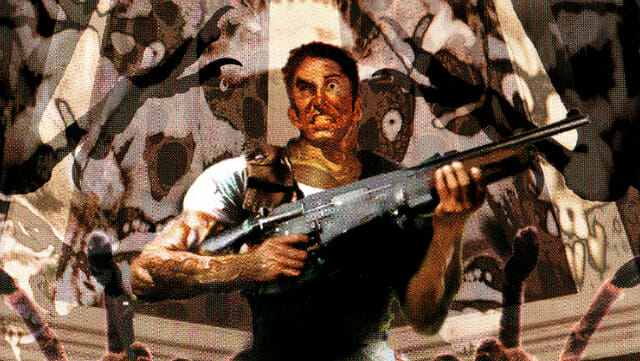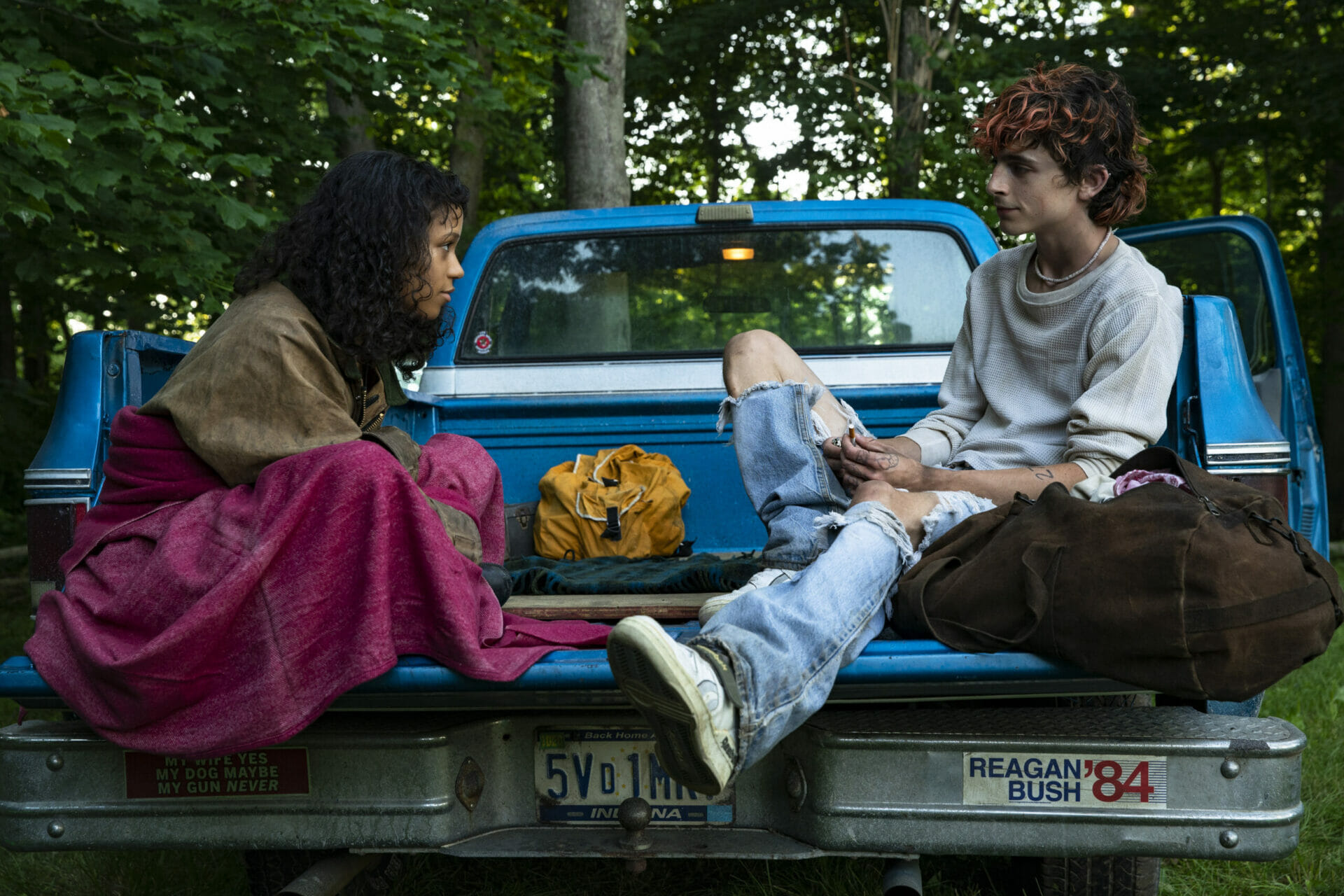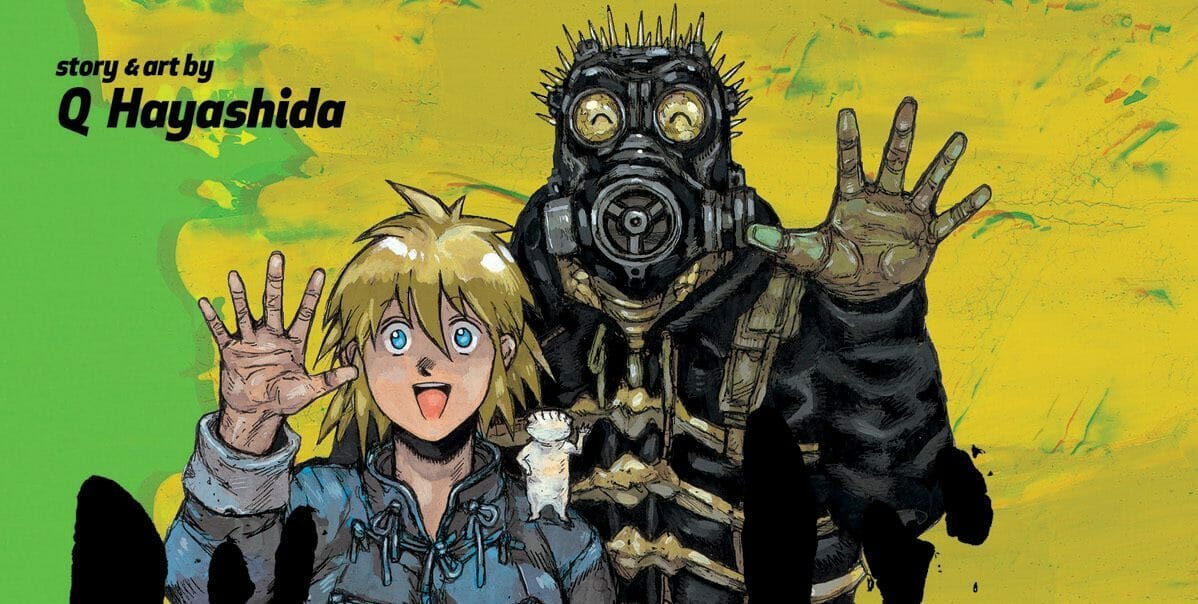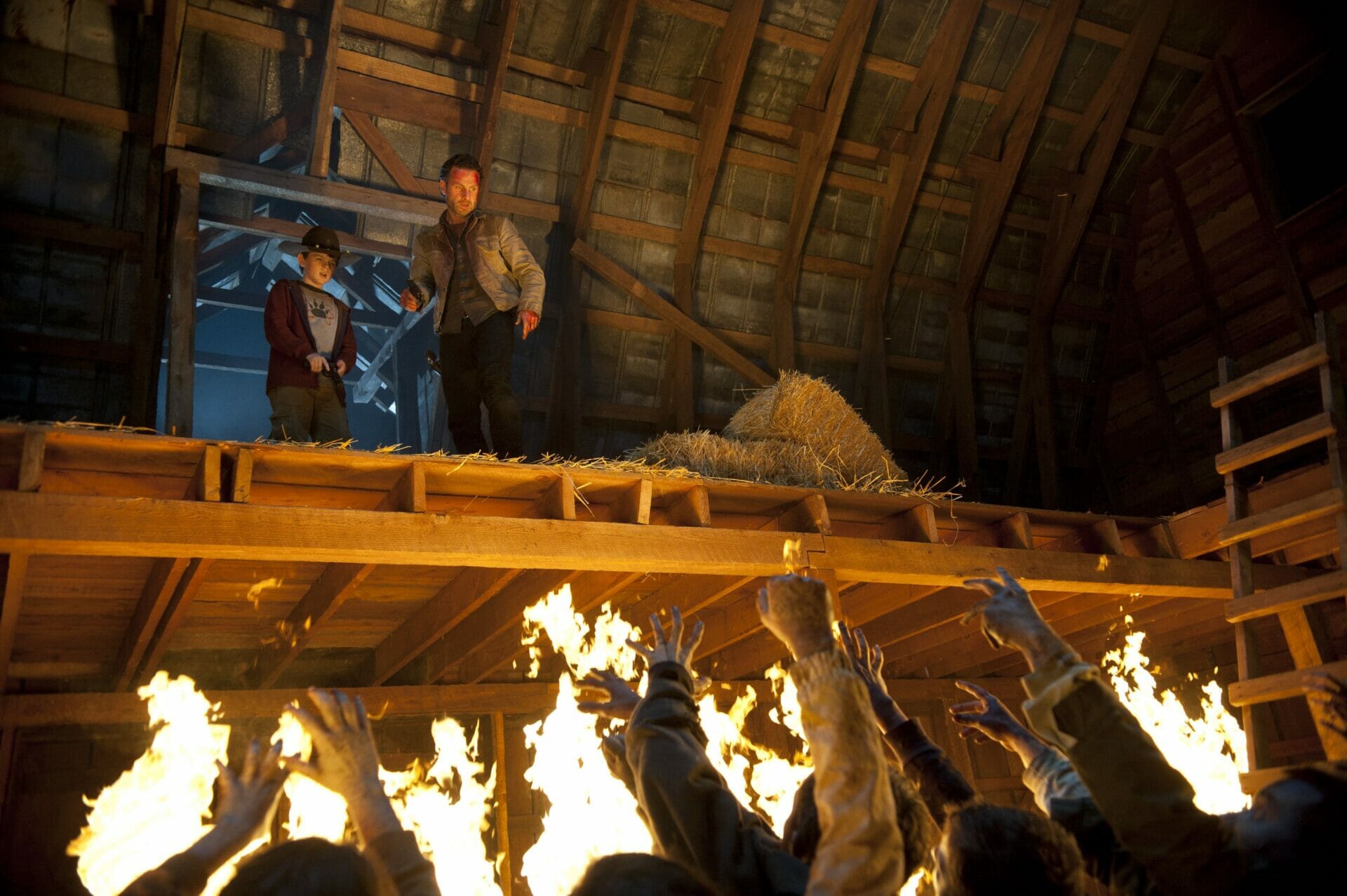
The Walking Dead TV Show | Adapt and survive
Creator
Country
Seasons
Runtime
Original language
Subgenre
Music by
The Walking Dead stands as the culmination of all zombie literature and cinema of the previous decades, and is one of the longest-running series on television. With its 11 seasons and 177 episodes, aired on AMC from 2010 to 2022, it is also the progenitor of everything that came after it in the genre, especially in video games. The Walking Dead is an adaptation of the hit comic book series of the same name, created by Robert Kirkman, Tony Moore, and Charlie Adlard between 2003 and 2019 for Image Comics.
As raw, cynical, and ruthless as the comic book that inspired it, this TV series investigates more the nature of man than the monsters that threaten it. It is also not afraid to torture and kill its heroes, something both shocking and surprising that has also been seen in the same years in Game of Thrones.
- Survival horror meets soap opera
- An expanding universe
- A shifting focus from the monster to society
- Family is the one you find along the way
- A never-ending strategy game
- The world beyond
Survival horror meets soap opera
“Deputy Sheriff Rick Grimes awakens in a zombie-infested world and must reunite with his family.” These words from U.S. cartoonist Robert Kirkman were enough to convince Image Comics that The Walking Dead would become a worldwide phenomenon.
While fitting into the zombie-horror tradition started by George A. Romero in the 1970s, the concept innovates survival horror by merging it with soap opera in a frontier western atmosphere. Kirkman’s screenplay ensures fidelity to the original work, adapted for television by Frank Darabont. However, the authors choose different paths than the comic series. New characters enter, others change trajectory, narrative arcs vary, and the overall story lands at a different ending. This aspect enriches and enhances The Walking Dead from the very first episodes, opening up to a multiverse between spinoffs, books, and video games that will make the franchise’s fortune even in the coming years.
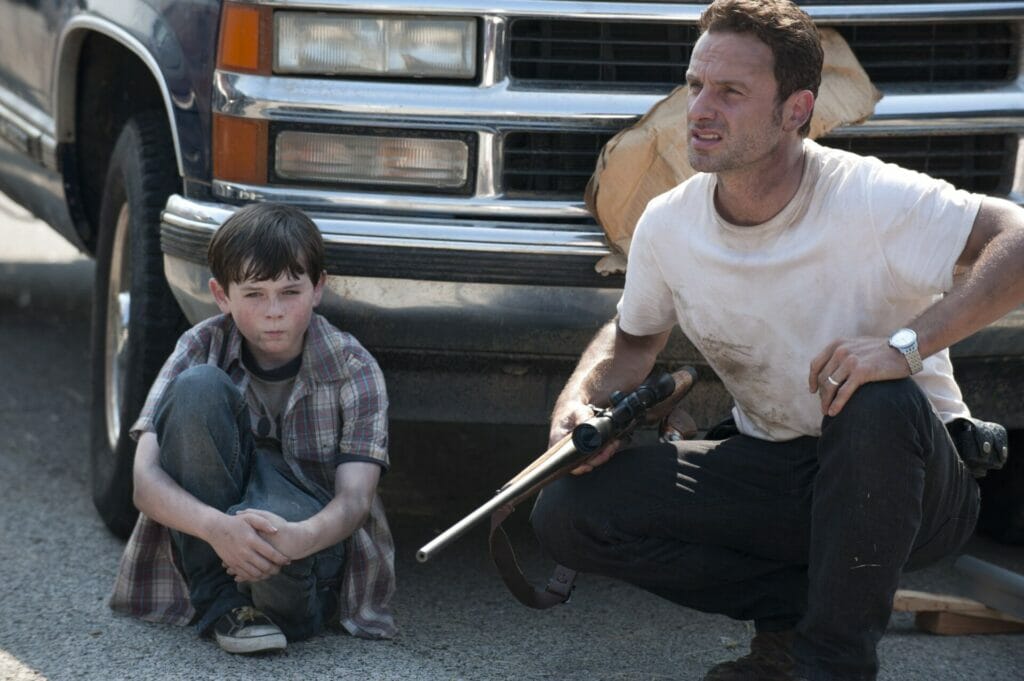
An expanding universe
Credit for the success is also due to the cast. This starts with the main character Rick Grimes, played by Andrew Lincoln, and his right-hand man Daryl Dixon (Norman Reedus), the crossbow-wielding biker, a secondary character on which the last seasons of the series rest. With The Walking Dead, Reedus becomes an icon of survival horror: in 2019, he became the protagonist of Death Stranding, a video game born from the visionary mind of Hideo Kojima, and in 2023 he will have a spinoff series dedicated to his character, Daryl.
Secondary characters and – to a lesser extent – antagonists in this series have at least as much charisma as the main characters, delineating a choral story in which everyone can recognize themselves, wondering how they themselves would act in the face of the moral dilemmas of Rick, his wife Lori (Sarah Wayne Callies), and Rick’s friend-rival Shane Walsh (Jon Bernthal). In a society with no more points of reference, it is from the group that individuals draw the strength to survive.
This is demonstrated by the female characters, initially overwhelmed by events, but who then prevail – strong and vengeful like Michonne (Danai Gurira), cunning like Carol Peletier (Melissa McBride), and the leaders like Maggie Greene (Lauren Cohan). This is until they cross paths with the enemy no one wants to find: Negan, at least as brutal and heinous as he is magnetic and mocking. No one could portray him better than Jeffrey Dean Morgan (Watchmen, 2009).
A shifting focus from the monster to society
Another winning element in Kirkman’s work and TV adaptation is the rapid slipping and sliding of the central theme from the zombie threat to its effects on society. The genius of the authors is to never focus on the origin of the virus, nor on the cure for the disease that turns the dead into walkers.
The zombie apocalypse is the pretext that triggers events and generates twists and turns, and above all, the discovery that doom befalls the entire human race. Above all, it is the factor that causes the collapse of the balance and structure of society, forcing the protagonists to continually adapt. But in the face of the apocalypse, a frightened and selfish humanity fails to put up a united front: it fragments into factions fighting for survival, bowing to even the most inhumane actions. It soon becomes evident how the real danger is not the walking dead but what the living have become.
We are the walking dead.
Rick Grimes, Season 5 Episode 10
Family is the one you find along the way
Leading a small group of survivors, Rick learns firsthand that those who do not adapt to the new world and its rules are doomed to succumb. This constant challenge is the driving force of the story. Characters initially paralyzed by fear begin to stand up for themselves until they become an organized team. But in The Walking Dead, there is always a price to pay: to protect family, the natural one of the one or encountered along the way, the protagonists constantly risk losing themselves and their humanity.
Fleeing Atlanta, Georgia, Rick explores a collapsed civilization where nature has regained the upper hand and small groups of survivors reorganize to defend themselves. The Walking Dead is also a catalog of more or less successful experiments in rebuilding society when there are no rules left and nobody to enforce them. Some try to shape a more egalitarian and democratic society, like Rick in Alexandria and Maggie at the Hilltop. Others aspire to a utopia, like the Kingdom of Ezekiel with its trained tiger or the community of women in Oceanside.
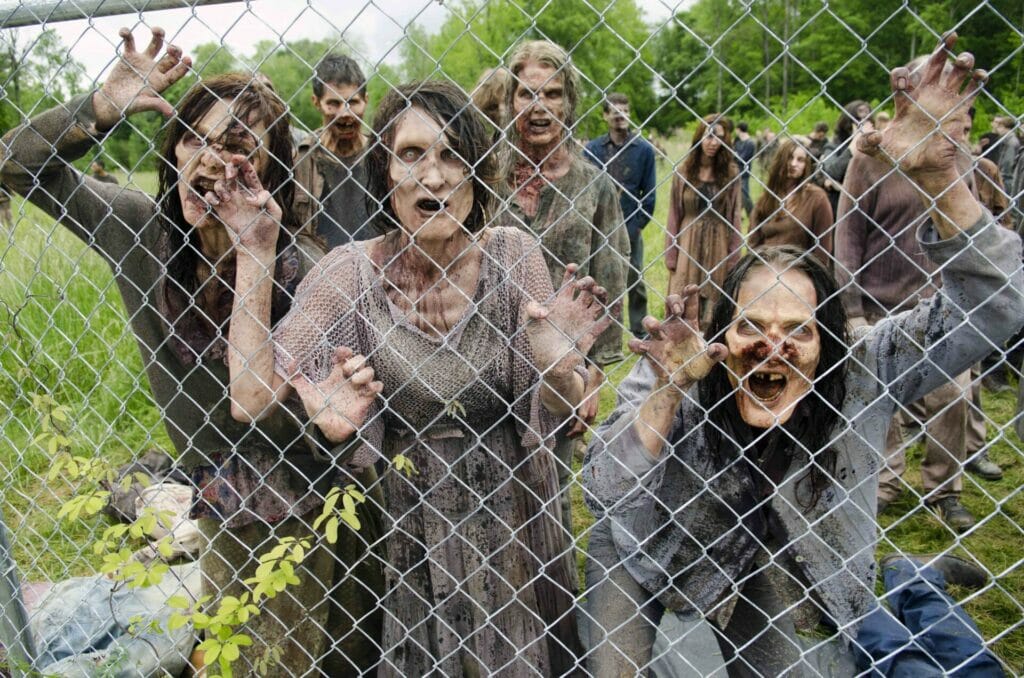
In a world based on prevarication and survival of the fittest, some slip into authoritarianism, as in Woodbury, the Governor’s city-state or savior sanctuary. Or they trace in the new world the patterns of before, as at the Commonwealth, with its privileges and inequalities. Someone tries to start again from from scratch, starting with the horse and plow, or – literally – ends up devouring other people. Trials are held, or summary justice is meted out with the law of retaliation. Yet always, those who do not adapt to the new world succumb to its laws.
No takers? Fine, but get one thing straight.
If you‘re staying, this isn’t a democracy anymore.
Rick Grimes, “Ricktatorship speech” The Walking Dead – Season 2 Episode13
A never-ending strategy game
In this game of opposites, survival strategies are the most intriguing aspect. Once the dynamics of zombies are understood, the group learns how to use them to their advantage: directing them in a herd towards the enemy as a weapon, blending in among them, or keeping them around as defense.
When it explores these aspects, The Walking Dead shows its best potential. One example is when Rick and his companions settle on Herschel’s farm in the early seasons. Or when they conquer the prison that will briefly be their home. Or again when they explore new scenarios in Washington or in the subway tunnels. In the big action sequences, special effects, costumes, and makeup are at their best. In addition, flashbacks, flashforwards, and a narrative unfolding parallel stories succeed in creating suspense and twists.
Less convincing is the soap aspect, when it slows down the pace too much. Although these interludes do create empathy with the protagonists and make the cliffhangers of the various seasons even more effective: above all, the terrifying encounter with Negan in the last two episodes of season 6.
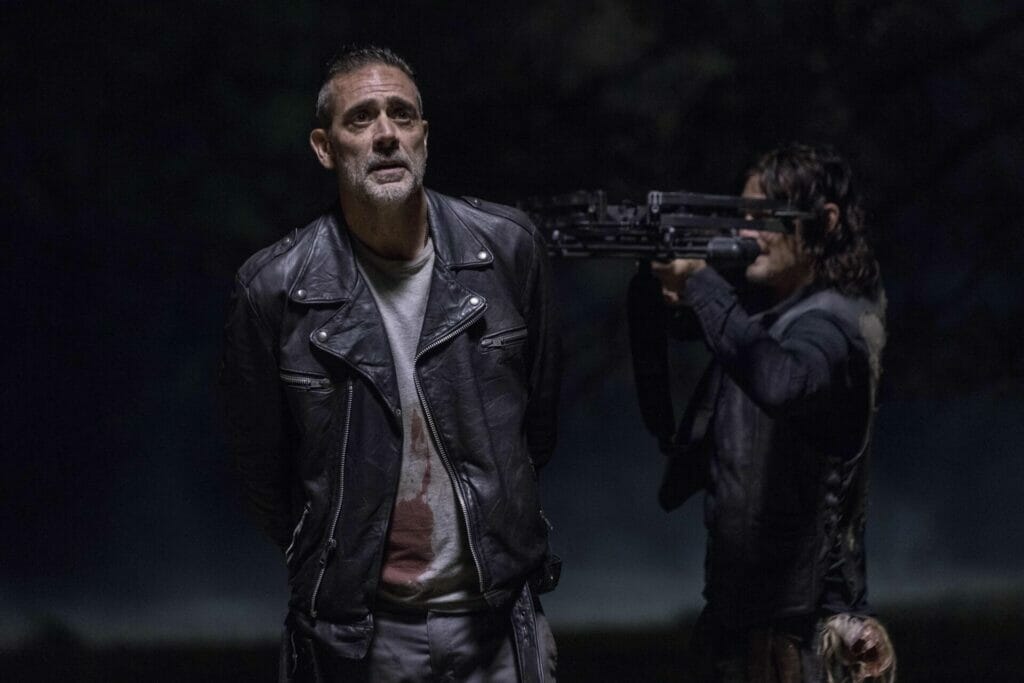
A great protagonist like Rick needs a credible, well-constructed enemy. No one in this series is on par with Negan, a former gym teacher who mercilessly kills with his baseball bat, Lucille. And when The Walking Dead has the courage to make bold choices that disorient the viewer, that is where the message comes through most effectively: the cycle of violence triggered by man will never end. But despite it all, neither will the will to help each other, love, and survive.
We change each other
we help each other
we make each other better
and it never ends.Sasha, Season 9 Episode 5
The world beyond
Maintaining the dramatic level when the main character leaves the scene is challenging for a series. If this happens due to production needs, it is even more so. In 2018, after eight seasons, Andrew Lincoln announced that he would leave the series for family reasons.
Rick’s departure after nine seasons marks the final separation of the trajectory from the comic book. But as in The Office, albeit in a show of an entirely different tenor, the hero’s departure gives secondary characters a chance to emerge. Marginal storylines gain more depth, with more or less successful, more or less predictable results. It happens to archrivals Maggie and Negan, who, in 2023, star in the spinoff The Walking Dead: Dead City, set in New York City. Or to the unlikely duo Daryl and Carol, who will return at the end of the year with a series set in Paris, while audiences may see Rick and Michonne again in 2024.
Precisely the need to leave the ending open is the Achilles’ heel of the last few seasons, which have seemed less convincing than the first parts. Even the long-awaited finale, in November 2022, rather than closure, gave the impression of passing the baton to the following chapters of this franchise. Although The Walking Dead and its heirs, as evidenced by the success of The Last of Us (first the video game, then the TV show), and also the video games Dying Light and Days Gone, still have the potential to keep audiences glued to the screen.








